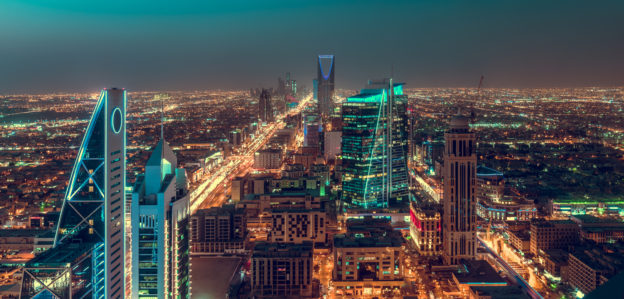According to the Neom Company, the city’s first phase will be completed by 2025. Work has already begun on various infrastructure projects, with a commercial airport, staff residences and offices all now operational. In September 2019 Neom awarded contracts to build and operate three new residential areas for construction workers with the capacity for 30,000 people.
If Neom does manage to translate itself from the drawing board into reality, technology will play a central role in the city’s development and day-to-day running, with plans for artificial rain, a fake moon, robotic maids, flying taxis and holographic teachers supposedly in the pipeline. As “a new blueprint for sustainable life“, it would be entirely run on renewable energy, not to mention desalinated seawater, with residents served by vertical farms and solar-powered greenhouses.
According to Neom’s founders, the city will be so advanced that robots will outnumber humans, while “everything will have a link with artificial intelligence.” Amongst other things, it will also be a state-of-the-art center for advanced manufacturing and medical innovation, spearheading genetic engineering efforts to improve the human body. According to Wael Hussein, a media and communications manager working for the Neom Company,
“One of Neom’s value propositions is to be an open laboratory for all innovators from around the world to come and experiment with their technologies. All the economic sectors within the city will showcase the latest and most innovative technologies, freeing up humans to engage more socially, instead of wasting their time on redundant daily tasks.”
High-tech Healthcare
Amongst its raft of hugely ambitious plans, Neom wants to attract potential residents by promoting itself as a cutting edge destination for health and wellbeing, with state-of-the-art medical facilities and “world-class” treatment of disease. Multi-specialty smart hospitals will be distributed across the city delivering an array of automated services, explains Dr. Maliha Hashmi, an executive director at Neom and Deputy Sector Head for the city’s Health & Wellbeing and Biotech Sector.
“This advanced system will be based on proactive prevention, not just treatment. The focus will be on pain management, muscular and skeletal diseases and cancer, as well as a balanced overall approach to wellbeing.”
A dedicated digital infrastructure, integrating genetic and smart technologies with artificial intelligence, will see Neom offer real-time assessments and “digital twins” to both residents and visitors.
“At the point of entry, everyone – both Neomians and visitors – will have the opportunity to have a digital twin of themselves created. This will lead to personalized and precise medical treatment. General treatment pathways will be removed and everything will be catered to a person’s specific genomic profile. These methods exist today, but simply haven’t been brought to scale at this level yet.”
Saudi currently spends an estimated $12.5 billion on overseas healthcare, so those overseeing Neom see the city’s development as an opportunity to redirect that money back inside the country. Launched in 2013, the Saudi Human Genome Program (SHGP) aims to sequence the genomes of the entire Saudi population, leading to the early diagnosis of genetic disorders and preventing common hereditary diseases.
Biotechnology is one of Neom’s 16 priority industries, with the city aiming to position itself at the forefront of developments in gene therapy, genomics, stem cell research, nanobiology, and pharmaceutical manufacturing.
Challenges Ahead
Back in 2017, plans for Neom were announced at the Future Investment Initiative conference – an annual event held in Riyadh to discuss global economic and investment trends. Given the city’s futuristic ambitions, it was rather apt that at the same conference, an intelligent humanoid robot called Sophia declared her Saudi Arabian citizenship – the first time in history that an AI device had been awarded such status.
When it comes to Neom, it’s hard to figure out just where the reality ends and the grandiose make-believe begins. The project’s advisory board is packed with internationally renowned tech and science luminaries, while Saudi Arabia has so far pumped $1 billion into Lucid, Tesla’s rival autonomous carmaker, which many see as no coincidence.
According to those overseeing the project, Neom has already invited tenders from a range of international firms, while plans are moving forward to build a road bridge to Egypt. Contracts have supposedly been awarded to Arup, WSP and Fugro NV, although all three declined to comment on their involvement.
http://emag.archiexpo.com/smart-city-neom-city-in-the-sand/





